Secret Side Effects of Eating Raspberries, Says Science
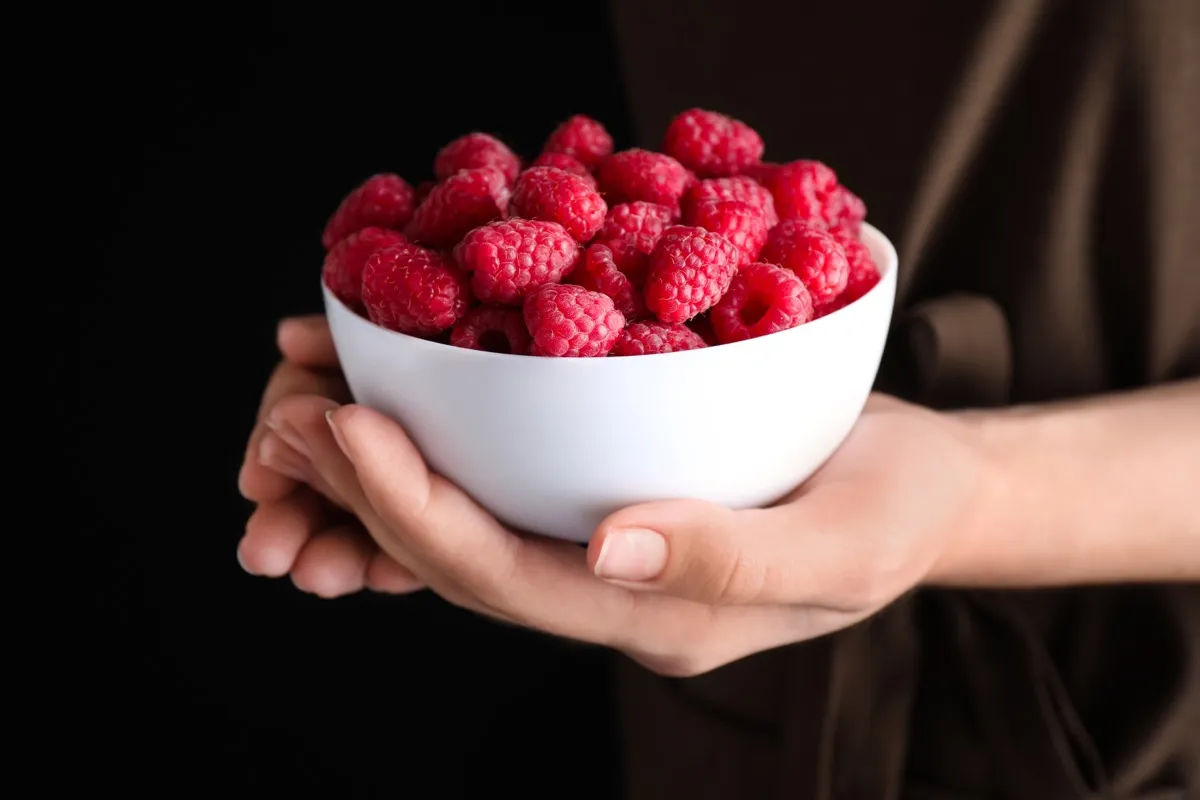
One of the best things about summer is the abundance of fresh, healthy food that's suddenly in season. Among the most delicious—and readily available—types of produce in the summer is the raspberry, which can be found in country gardens, raised beds on apartment terraces, or growing wild in many areas of the U.S. and beyond.
It's not just their rampant availability during the summer months that should convince you to add a few of these tasty berries to your regular routine, however. Read on to discover the many beneficial side effects of eating raspberries, according to science. And for more, check out The #1 Best Juice to Drink Every Day, Says Science.
They may help lower your cholesterol.
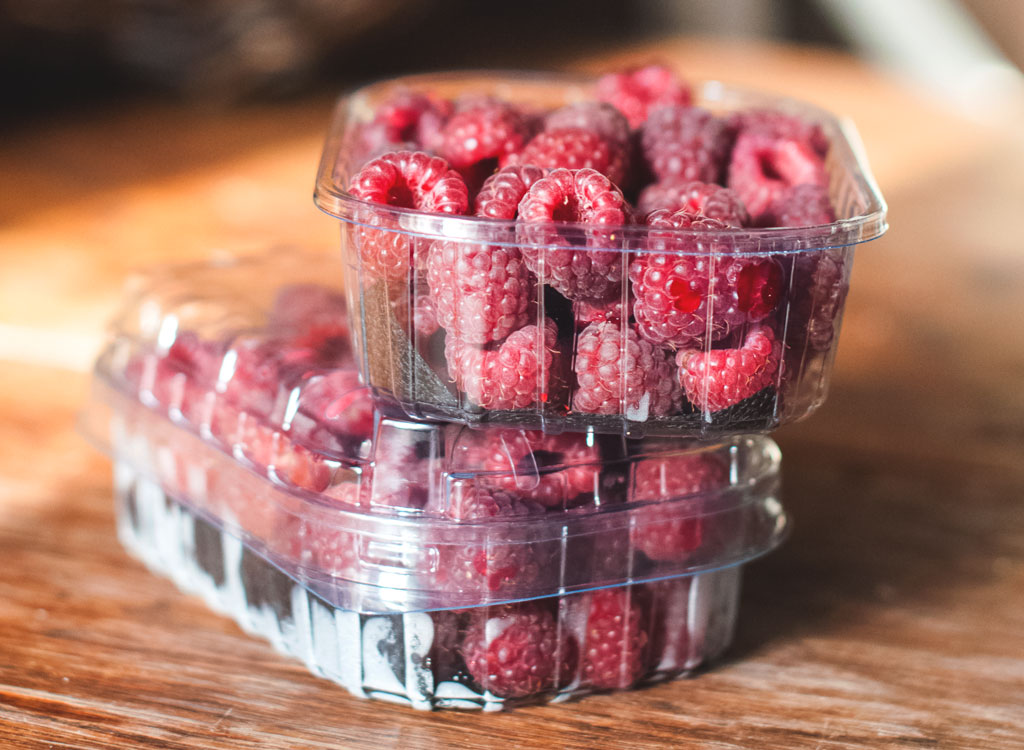
Whether you currently have high cholesterol or just want to make sure your cholesterol levels stay in a healthy range in the future, there's no time like the present to start incorporating some raspberries into your regular routine. A 2014 study published in Phytotherapy Research found that, among a group of 77 patients with metabolic syndrome, those who were given black raspberry supplementation over a 12-week period saw both their total cholesterol and their total cholesterol to HDL cholesterol levels decrease significantly more than those in a placebo group. And for more ways to protect yourself, check out these Eating Habits to Avoid if You Don't Want High Cholesterol, Say Dietitians.
They may improve your post-meal blood sugar.

If you have diabetes or are generally worried about your blood sugar control, adding some raspberries to your diet may be a smart move. A 2019 study published in the journal Obesity found that, among a group of 32 adults, those given either 125 grams of frozen red raspberries or 250 grams of red raspberries with their high-carb, moderate-fat breakfast over a three-day period had reductions in their peak glucose and peak insulin levels as compared to a control group who received no raspberries.
They may help reduce cancer growth.
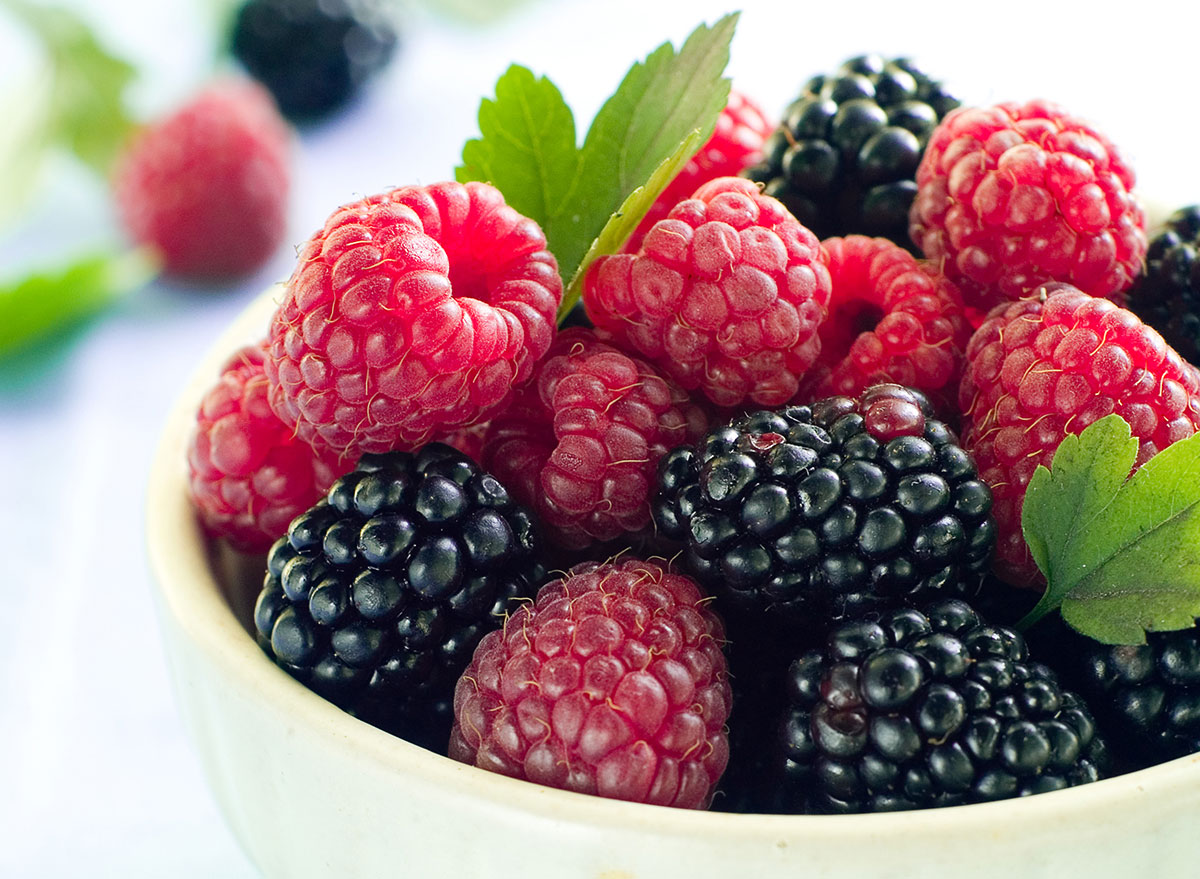
While anyone with cancer should speak to their doctor before making changes to their eating habits, research suggests that black raspberries may have a tumor-suppressing effect.
A 2011 study published in Clinical Cancer Research found that, among 20 patients whose colorectal adenocarcinomas and adjacent non-cancerous tissues were biopsied prior to and after consumption of black raspberry powder for between one and nine weeks, there was a decrease in specific markers of cancer cell proliferation, leading researchers to believe that black raspberries may be able to suppress the growth of specific types of tumor cells.
They may help regulate your digestion
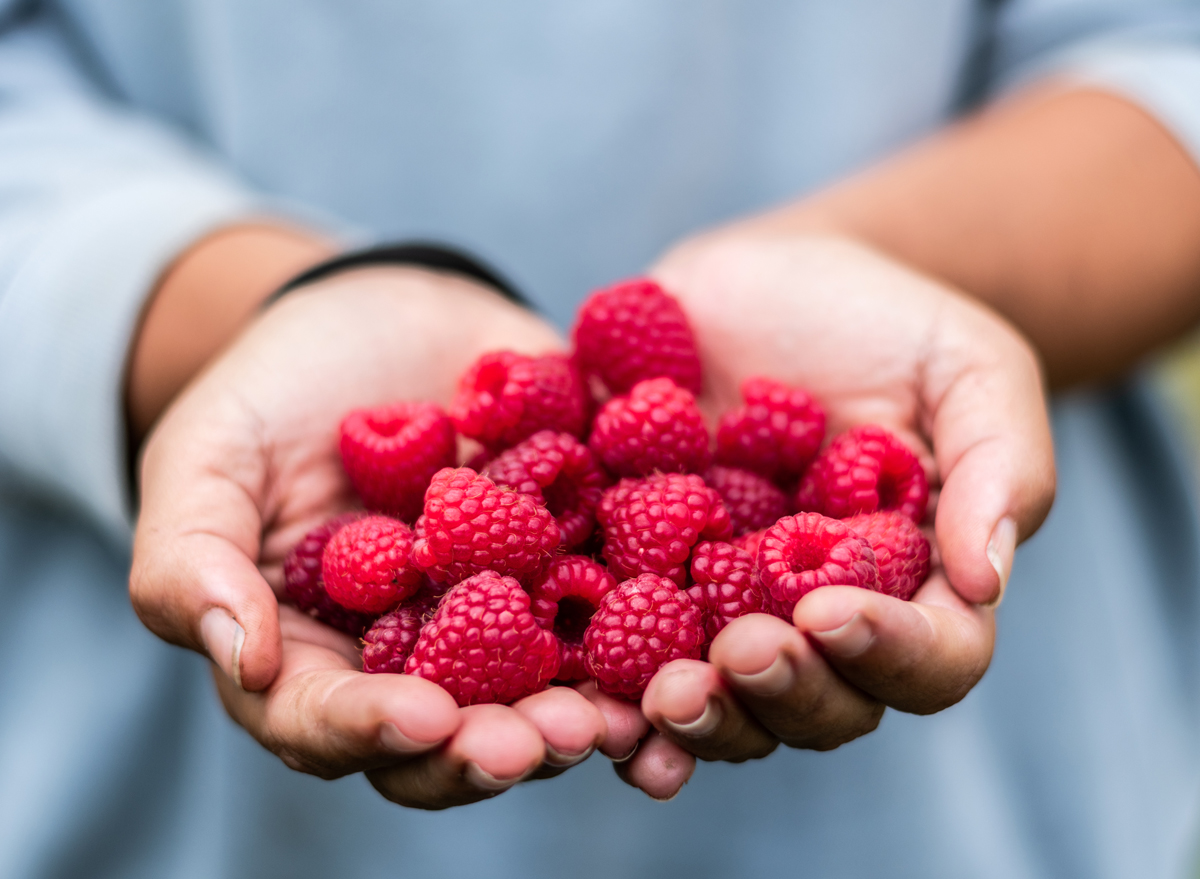
If you want to help keep your digestion working like a well-oiled machine, eating more raspberries can help. A cup of fresh raspberries packs approximately eight grams of dietary fiber, which can help move things along in your digestive tract, reducing discomfort and bloating along the way. And if you want to avoid bloating and discomfort, it's time to ditch the 25 Unhealthiest Habits for Your Digestion.
They may benefit your heart health.
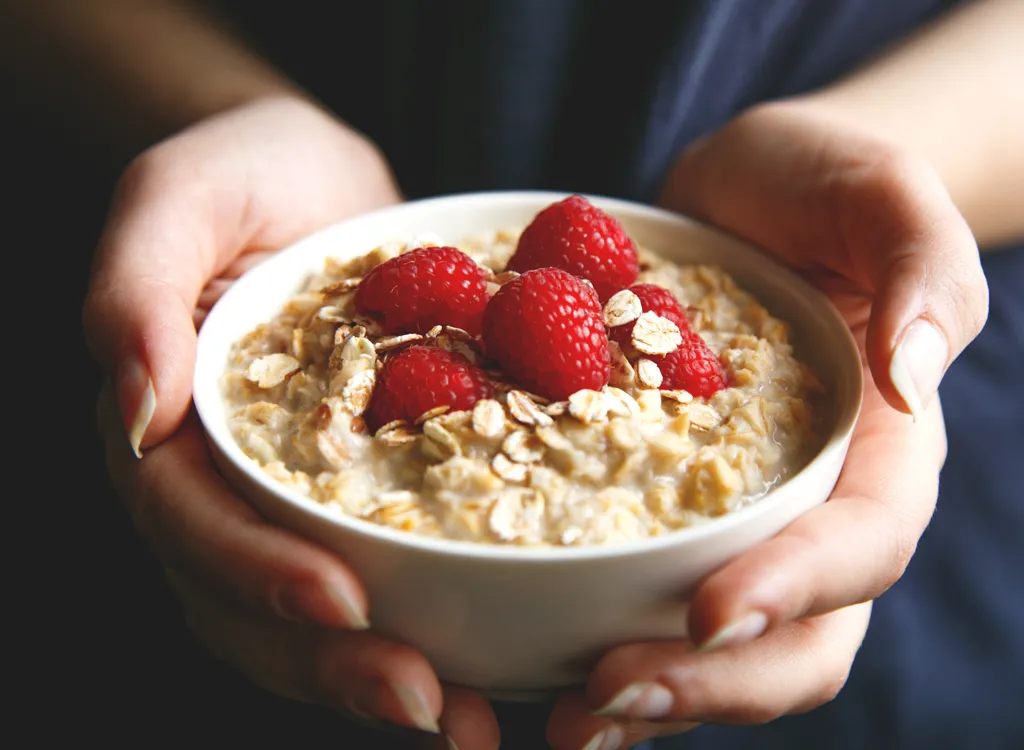
Raspberries aren't just a boon for your tastebuds—they're pretty great for your heart health, too. A cup of raspberries packs nearly half of your RDA of vitamin C, which may have a cardioprotective effect. A 2017 study published in Nutrients found that, among a cohort of 13,421 adults followed for an average of 11 years, those who consumed the highest levels of vitamin C had significantly lower rates of cardiovascular mortality after adjusting for other potential risk factors.
For more ways to protect your heart, check out The Best Foods That Can Help Lower Your Risk of Heart Disease.
Read this next:









